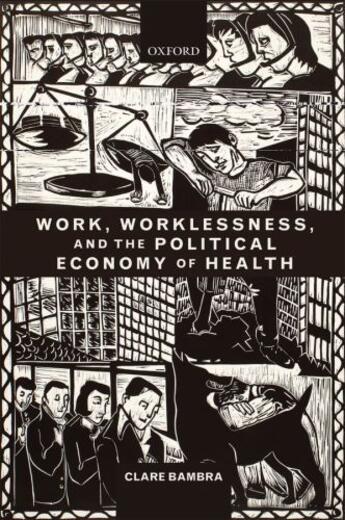-
Nombre de pages : (-)
-
Collection :
(-)
-
Genre :
(-)
-
Thème :
Non attribué
-
Prix littéraire(s) :
(-)
Résumé:
We are told that 'work is good for us' and that ill health is caused by 'individual lifestyles'. Drawing on research from public health, social policy, epidemiology, geography and political science, this evidence-based inter-disciplinary book firmly challenges these contemporary orthodoxies. It... Voir plus
We are told that 'work is good for us' and that ill health is caused by 'individual lifestyles'. Drawing on research from public health, social policy, epidemiology, geography and political science, this evidence-based inter-disciplinary book firmly challenges these contemporary orthodoxies. It systematically demonstrates that work - or lack of it - is central to our health and wellbeing and is the underlying determinant of health inequalities.
Work is the cornerstone of modern society and dominates adult life with around a third of our time spent working. It is a vital part of self-identity and for most of us it is the foundation of economic and social status. As such, the material and psychosocial conditions in which we work have immense consequences for our physical and mental wellbeing, as well as the distribution of health across the population. Recessions, job-loss, insecurity and unemployment also have important ramifications for the health and wellbeing of individuals, families and communities. Chronic illness is itself a significant cause of worklessness and low pay.
Drawing on examples from different countries, this book shows that the relationship between work, worklessness and health varies by country. Countries with a more regulated work environment and a more interventionist and supportive welfare system have better health and smaller work-related health inequalities. The book provides examples of specific policies and interventions that mitigate the ill-health effects of work and worklessness. It concludes by asserting the importance of politics and policy choices in the aetiology of health and health inequalities.
Donner votre avis














